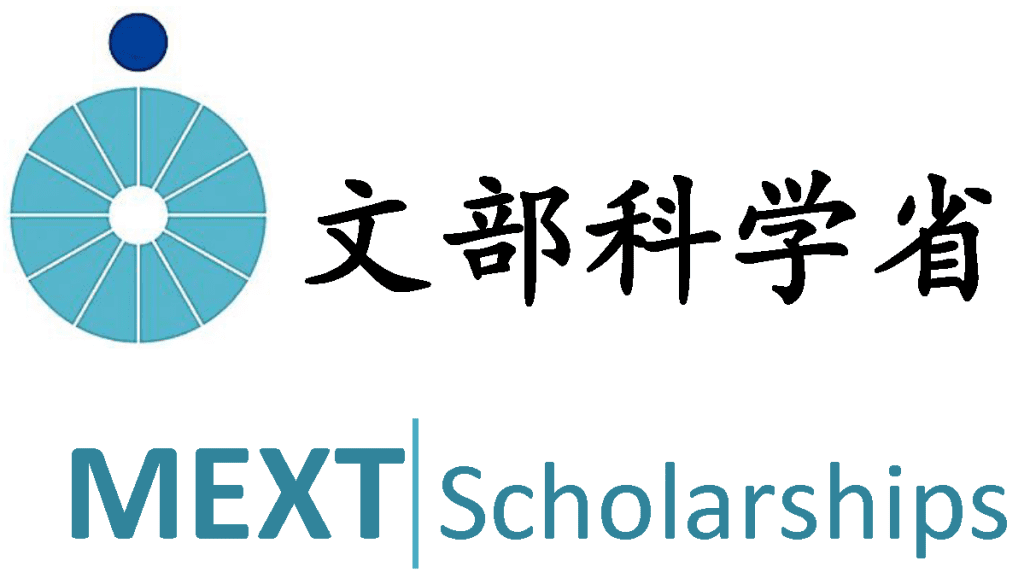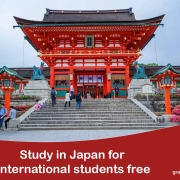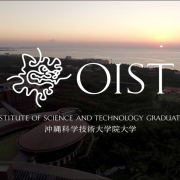MEXT Scholarship (2024-2025) | Application form, Deadline, Benefits
Estimated reading time: 15 minutes
The MEXT Scholarship, also known as the Monbukagakusho Scholarship, is a prestigious program the Japanese government offers through the Ministry of Education, Culture, Sports, Science, and Technology (MEXT). It is designed for international students who wish to study in Japan. This scholarship is a testament to Japan’s commitment to promoting global exchange and academic excellence, and it is available for the 2024-2025 academic year. The scholarship provides comprehensive support, including financial assistance for tuition fees, living expenses, round-trip airfare, and a monthly stipend. Additionally, recipients will have the opportunity to receive Japanese language training, which will help them communicate effectively and develop a deeper understanding of Japanese culture.
The MEXT Scholarship is unique because it covers various academic disciplines, allowing students to pursue their educational interests at prestigious Japanese universities. In addition to academics, the scholarship also emphasizes personal and professional growth through research activities, creating a comprehensive learning experience. Moreover, the MEXT Scholarship promotes cultural exchange, enabling students to immerse themselves in Japanese society, learn about its rich traditions, and build long-lasting relationships with fellow scholars from diverse backgrounds. Therefore, the MEXT Scholarship is not just a financial support system but also a transformative journey that empowers international students to thrive in Japan’s dynamic educational environment.

The MEXT Scholarship is a popular opportunity in Japan for students pursuing bachelor’s, master’s, and Ph.D. degrees. In this post, we will provide you with details about the MEXT Scholarship for the year 2024. We will outline its benefits and provide a step-by-step guide for the application process. This scholarship is available for a range of academic levels, including undergraduate, graduate, doctoral, and training programs. The MEXT Scholarship provides comprehensive support, covering tuition fees, monthly living allowances, and travel expenses to and from Japan. In addition, recipients may receive an extra monthly stipend for language study and a settling-in allowance.
The Ministry of Education, Culture, Sports, Science and Technology (MEXT) of Japan provides financial aid to foreign students who aim to pursue research degrees at Japanese universities through the Japanese Government (MEXT) Scholarships Program. The scholarship application cycle is usually announced in April. What’s notable about this initiative is that IELTS/TOEFL and Japanese language proficiency are not mandatory requirements. This makes the scholarship accessible to a diverse range of students.

MEXT Scholarship Summary 2024-2025 (Monbukagakusho)
Level of Study: Undergraduate / Masters / Ph.D. / Training
Institution(s): Japanese Universities
Study in: Japan
Courses Offered: All types of courses are offered in all Japanese Universities, from Social Science to Engineering, Medical to Health, Arts, Humanities, etc. There are No Academic Fields Restrictions.
Program Period: Undergraduate: 4-5 Years, Masters: 2-3 Years, Ph.D.: 3-4 Years
MEXT Scholarship Deadline: Varies from Embassy to Embassy (Click here to check deadlines)
MEXT Scholarship: Benefits
A fully funded scholarship for international students to study in Japan is available through the MEXT Scholarship 2024. The following advantages will be given to the recipient of this scholarship:
Allowances: Monthly Stipend Allowance, Preparatory Allowance (2024 Rate)
Education Fees: Fees for the Entrance Examination and Tuition fees at Universities will be paid by MEXT.
Traveling Expenses: Transportation to Japan: MEXT will cover your Round Airfare Travel Expenses from your Country to Japan. The Airline ticket will be an Economy-class ticket for the flight.
Accommodations: Residence halls for international students provided by universities.
MEXT Scholarship 2024:Eligibility Criteria
The applicant must satisfy each of the conditions listed below in order to be eligible for the MEXT Scholarship:
- Required Language: English
- Eligible Countries: All world countries
- Candidates must be citizens of a nation with which Japan has diplomatic ties.
- A candidate who at the time of application, was a citizen of Japan is ineligible.
- For undergraduate students, you must be at least 17 years old, under 25, and have completed 12 years of schooling or courses equivalent to a high school (including prospective graduates).
- You must be under 35 and a college graduate to apply for the Master’s or Ph.D. program (including prospective graduates). Or your education must have lasted 16 or 18 years.
- For students enrolled in teacher preparation programs, you must be under 35 years old and a graduate of a university or teacher preparation program. You must have at least five years of current teaching experience in your nation’s primary, secondary, or teacher preparation institutions.
- Students interested in studying Japanese must be between the ages of 18 and 30. When applicants arrive in Japan, they must be enrolled as undergraduate students in faculties or schools that specialize in Japanese language or culture at a university outside of Japan, and they must be enrolled in the home institution when they depart for their home countries.
How to Apply for MEXT Scholarship 2024-2025?
To apply for a MEXT Scholarship, please follow the application instructions below:
- 1Use this page to locate the Japanese Embassy or Consulate in your nation.
- Go to the Japanese Embassy’s website in your nation. You can find the MEXT scholarship under the Education / Scholarship tab.
- Download and complete the MEXT scholarship application.
- Send the necessary paperwork to the Japanese Embassy in your nation, as listed below.
- The Japanese Embassy will administer a written test. See here for a sample written test with answers. 6-Interviews with the candidates will then be held.
- Email or the embassy website will be used to notify the chosen candidates.

MEXT Scholarship 2024-2025:Required Documents
1- MEXT Scholarship Application form
2- The highest degree is verified with official stamps.
-Bachelor’s program applicants: 12 Years of Education
-Master’s program applicants: Bachelor’s degree
-Ph.D. program applicants: Master’s degree
*Note: A notarized copy of an English translation is required if the degree is not in English.
3-Transcript for the highest degree that has been officially stamped. (Including the system of grades)
-Bachelor’s program applicants: 12 Years of Education
-Master’s program applicants: Bachelor’s degree Transcripts
-Ph.D. program applicants: Master’s degree Transcripts
*Note: If the diploma is not in English, a notarized copy of a translation in English or is required.
4-Two letters of recommendation: The letters of recommendation must be written in either English or Spanish by the applicant’s professors, advisors, or employers (who can assess your academic performance and research potential). (For students doing research)
5- Passport Scan (if available at the time of application)
6- Curriculum Vitae (CV) (for research students)
7- Passport-sized photos
8-Plan of study or statement of purpose. English is used to write the study schedule. The fundamental information must cover the applicant’s motivation, educational and research background, and intended APU studies. (For students doing research).
9-Students who attended language schools taught in English may submit an English Proficiency Certificate from their home university and are exempt from taking the language test.
10-academic theses or pertinent literature (for research students).
11- Other reference documents (if applicable).
Summary of MEXT Scholarship (Fully Funded)
| Category | Research Students | Research Students | Undergraduate Students2 | Japanese Studies Students3 | Japanese Studies Students3 |
|---|---|---|---|---|---|
| Application method | Embassy Recommendation | University Recommendation (general program) | Embassy Recommendation4 | Embassy Recommendation | University Recommendation |
| Application period | Around April – May | Around late December – January1 | Around April – May | Around December | Around February1 |
| Arrival in Japan | Early April or late September of the following year | Late September | Around April of the following year | Late September of the following year | Late September |
| Selection method | Evaluation of submitted documents, a written exam, an interview, and others | Evaluation of submitted documents, a written exam, an interview, and others | Evaluation of submitted documents, a written exam, an interview, and others | Evaluation of submitted documents, a written exam, an interview, and others | Evaluation of submitted documents, an interview, and others |
| Eligibility | Those who have graduated or expect to graduate from an undergraduate or higher degree program | Those who have graduated or expect to graduate from an undergraduate or higher degree program | Those who have graduated, or expect to graduate, from a secondary school or equivalent | Overseas undergraduate students majoring in fields related to the Japanese language and/or culture (having studied these subjects for a total period of one year or more as of 1 September of the year they expect to arrive in Japan) and expecting to return to their home universities after completing a program in Japan | Overseas undergraduate students majoring in fields related to the Japanese language and/or culture (having studied these subjects for a total period of one year or more as of 1 September of the year they expect to arrive in Japan) and expecting to return to their home universities after completing a program in Japan |
| Age (as of 1 April of the year of arrival) | 34 or younger | 34 or younger | 24 or younger | 18–29 | 18–29 |
| Duration | -Non-degree students: up to 2 years, including a six-month Japanese-language training period5, 6 (not mandatory for those with sufficient language skills) -Degree students (master’s, professional, and doctoral): until completion of the degree program (not to exceed the standard number of years required)6 | Non-degree students: up to 18 months6 -Degree students (master’s, professional, and doctoral): until completion of the degree program (not to exceed the standard number of years required)6 | Five years, including a one-year Japanese language training period2 | One year | One year |
| Monthly stipend7 | -Non-degree students 143,000 yen -Master’s and professional-degree students 144,000 yen -Doctoral students 145,000 yen Additional monthly payment: -3,000 yen for those studying/conducting research in Kyoto City -2,000 yen for those conducting research in Uji or Inuyama City | -Non-degree students 143,000 yen -Master’s and professional-degree students 144,000 yen -Doctoral students 145,000 yen Additional monthly payment: -3,000 yen for those studying/conducting research in Kyoto City -2,000 yen for those conducting research in Uji or Inuyama City | 117,000 yen Additional monthly payment: -3,000 yen for those studying/conducting research in Kyoto City -2,000 yen for those conducting research in Uji or Inuyama City | 117,000 yen Additional monthly payment: -3,000 yen for those studying/conducting research in Kyoto City -2,000 yen for those conducting research in Uji or Inuyama City | 117,000 yen Additional monthly payment: -3,000 yen for those studying/conducting research in Kyoto City -2,000 yen for those conducting research in Uji or Inuyama City |
| School fees7 | Examination, admission, and tuition fees are exempted | Examination, admission, and tuition fees are exempted | Examination, admission, and tuition fees are exempted | Examination, admission, and tuition fees are exempted | Examination, admission, and tuition fees are exempted |
| Traveling cost7 | One round-trip ticket is provided | One round-trip ticket is provided | One round-trip ticket is provided | One round-trip ticket is provided | One round-trip ticket is provided |
1-These periods are for application through Kyoto University.
2- The language training is provided at the Tokyo University of Foreign Studies or Osaka University during the first year of the scholarship. The program includes the Japanese language and other subjects needed to prepare for undergraduate studies, which must be completed before the student goes to university. The university to be attended by the student for undergraduate studies is determined by MEXT in consultation with the preparatory educational institution and the university itself. For details, refer to the MEXT Scholarship application guidelines.
Please note that undergraduate MEXT Scholarship students are not eligible to enroll in the six-year programs at the Faculty of Pharmaceutical Sciences Division of Pharmacy and the Faculty of Medicine’s School of Medical Science at Kyoto University.
3-For details on Kyoto University’s Japanese studies program, see:
Japanese Studies Students Program (in Japanese).
4- University recommendation is also available but is limited to the following programs:
For details, please contact the administrative office of each program.
5-Intensive Japanese language training is available to MEXT Research and Teacher Training Students expecting to conduct graduate-level research in the Kyoto or Shiga region. For details, see Intensive Japanese Language Course for Monbukagakusho Scholarship Students.
6-Those wishing to go on to a master’s, doctoral, or professional degree program may apply for an extension of the scholarship to cover their postgraduate studies. Applications are evaluated by the university and MEXT and may be granted based on academic records and other criteria.
Please note that not all the applications are approved.
7-All scholarship benefits are subject to specified requirements.
Student Insurance in Japan
In Japan, it is mandatory for all students enrolled in universities or vocational schools to have health insurance. The country’s public health insurance system is known as “National Health Insurance” (NHI), which covers medical treatment expenses related to illnesses and injuries.
As an international student, you have two options for insurance: the National Health Insurance (NHI) and the private insurance offered by your school. The NHI offers extensive coverage for medical treatment, including hospitalization, surgery, medication, and medical tests. The insurance premium cost varies based on the student’s income, with a maximum monthly premium of approximately 2,500 yen.
Some universities and vocational schools offer their private insurance plans with different coverage, premiums, and additional benefits such as emergency evacuation or repatriation.

Contact information for MEXT Scholarship
Here is the contact information for the MEXT (Ministry of Education, Culture, Sports, Science, and Technology) Scholarship in Japan:
MEXT Scholarship Webpage
Embassy of Japan in your home country
- You can contact the Japanese Embassy in your home country to obtain information about the MEXT Scholarship program, including eligibility requirements, application procedures, and deadlines.
MEXT Scholarship Division
- You can also contact the MEXT Scholarship Division directly in Japan for more information: Address: MEXT Scholarship Division, Higher Education Bureau, Ministry of Education, Culture, Sports, Science and Technology (MEXT), 3-2-2 Kasumigaseki, Chiyoda-ku, Tokyo 100-8959, Japan Telephone: +81-3-5253-4111 (ext. 4309 or 4391) Fax: +81-3-6744-3577 Email: ryugaku@jasso.go.jp
Japan Student Services Organization (JASSO)
- JASSO is a government organization that provides support for international students in Japan. They can provide information about the MEXT Scholarship program, as well as other scholarships and support services for international students. Address: 2-2-1 Aomi, Koto-ku, Tokyo 135-8630, Japan Telephone: +81-3-5520-6111 Fax: +81-3-5520-6120 Email: info@jasso.go.jp
Frequently Asked Questions: MEXT Scholarship
Decide which level—undergraduate students, research students, or students of Japanese studies—is best for you first. Next, choose your major, which is equivalent to declaring your undergraduate study major in Canada. Subjects in the social sciences, humanities, or natural sciences may be major fields of study. For instance, Computer Science Research in Artificial Intelligence is a significant study area in the Natural Sciences.
Obtain recommendations for Japanese universities to apply to from your professors. You can visit the Japan Student Services Organization (JASSO) website (www.jasso.go.jp), which has a search engine for all the universities in Japan if your professor or previous professors cannot help you decide where to go. You can use the search engine to locate a university that offers the course of study you want to enroll in.
In Japanese universities, the academic year runs from April to March of the following year. Most of the time, the calendar year is divided into two semesters, the first from April to September and the second from October to March.
Unfortunately, the MEXT scholarship program in Canada does not cover specialized training or vocational education (such as community colleges and vocational schools). Please get in touch with the closest Japanese diplomatic mission if you are unsure whether the institution you’re interested in is a participating institution (Embassy or Consulate-General).
The application forms must be downloaded from the Study in Japan website and delivered to the Embassy or consulate general closest to your hometown. In theory, you must travel back to Canada for the test and interview.
If you completed your coursework in accordance with your country’s or province’s educational system, you might count extended breaks like summer vacation toward your six years of education. The duration should be 5 years and 10 months; however, if you stopped your studies in the middle for personal reasons. Please get in touch with the closest Japanese diplomatic mission (Embassy or Consulate-General) for more information if you have any specific justifications.
Yes. There should be an attached translation in either English or Japanese. You can translate this yourself or hire a professional translator to do it for you. This includes paperwork written in French. When possible, please submit documents in English.
Please contact the closest Japanese diplomatic mission (Embassy or Consulate-General) handling your jurisdiction as soon as possible if you have any questions or concerns.
Theoretically, the Japanese Embassy in Canada cannot accept paperwork from a third party and only interacts directly with applicants. Please email the Japanese diplomatic mission in your country if you cannot obtain a document by the deadline. Clearly describe your situation. Please get in touch with us at infocul@ot.mofa.go.jp if you live in the Ottawa-Gatineau area.
No, do not send more letters of recommendation than the number specified with your application. Only one academic letter of recommendation will be considered out of any submitted, and the others will be discarded.
Admission requirements for international students may vary depending on the university and the specific program. Common requirements include meeting certain academic standards, demonstrating English language proficiency, and providing proof of financial support for tuition and living expenses.
International students in the U.S., including those studying at affordable universities in New York, are generally allowed to work on campus part-time while maintaining their student status. However, off-campus employment may have more restrictions, so it’s essential to understand the specific regulations and limitations related to international student employment.




Father of sons aspiring to study in Japan
Good content. Thanks GrantUnity
Really helpful hope to attain scholarship 👍
Really helpful hope to get the scholarship 👍
very useful content. tnx
just wishing to be part of this great movement by the Japanese community
Good evening I want to ask first if we are not from schools which teach in English are we supposed to send the English certificate?
Secondly for undergraduate we must submit the transcripts of the 12 years can you tell me exactly which documents are we supposed to submit and note that I study in a French school
If we apply in January when are we supposed to arrive in Japan?
Thank you for understanding
Hi there,
Please go through the instructions in the below page:
https://www.mext.go.jp/en/policy/education/highered/title02/detail02/sdetail02/1373897.htm
Thanks Interesting article
Good morning. I’m from Sri Lanka.Can I know the Application deadline for this scholarship?
Hi Happy Merry Christmas Education is Special Gift Of God next to Jesus (son of god) Almasi isa to change our self ,family, Country,World therefore Let as learn Process for Future Plan
Hi Happy Merry Christmas Education is Special Gift Of God next to Jesus (son of God) Almasi isa to change our self ,family, Country,World therefore Let as learn Process for Future Plan
Hi Happy Merry Christmas Education is Special Gift Of God next to Jesus (son of God) Almasi isa to better change our self ,family, Country,World therefore Let as learn Process for Future Plan
Please how do I get the undergraduate form to apply for the scholarship. I can only find the form for teacher training students.
I am interested
Hi, I’m Oreva. I want to apply for the 2024/2025 MEXT undergraduate scholarship. I have two questions. First, which documents need to be notarized? Next, do I have to legalize the notarized documents at the Embassy of Japan in my country, I.e does the scholarship require legalized documents?